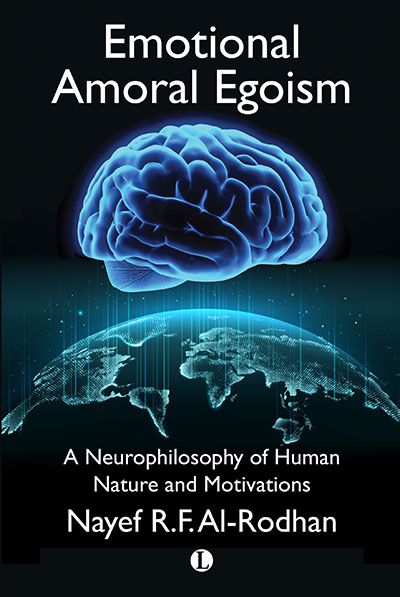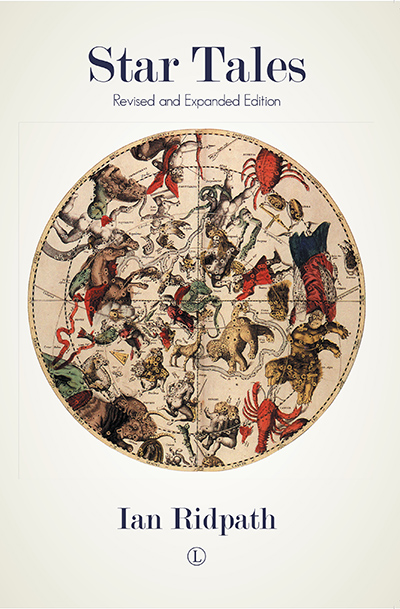Description
What makes us who we are? Are we born good or evil? Do we have free will? What drives our behaviour and why? Can technology change what it means to be human? In this thoroughly revised second edition of Emotional Amoral Egoism, Professor Nayef Al-Rodhan demonstrates the impact of our innate predispositions on key issues, from conflict, inequality and transcultural understanding to Big Data, fake news and the social contract. However, it is the societies we live in and their governance structures that largely determine how we act on our innate predispositions. Consequently, Al-Rodhan proposes a new and sustainable good governance paradigm, which must reconcile the ever-present tension between the three attributes of human nature (‘Emotional Amoral Egoism’) and the nine critical needs of human dignity.
This book is a perfect resource for enlightened readers, academics and policy makers interested in how our innate instincts and tendencies shape the world we live in, and how the interplay between neurophilosophy and policy can be harnessed for pragmatic and sustainable peace, security and prosperity solutions for all, at all times and under all circumstances.
About the Author
Professor Nayef R.F. Al-Rodhan is a Neuroscientist, Philosopher and Geostrategist. He was educated at the Mayo Clinic, Yale University and Harvard University, and is now an Honorary Fellow of St. Antony’s College, Oxford, Senior Fellow and Head of the Geopolitics and Global Futures Programme at the Geneva Center for Security Policy, Senior Research Fellow at the Institute of Philosophy, School of Advanced Studies, University of London, and a member of the Council on Frontier Risks at the World Economic Forum (WEF). He is a Prize winning scholar, and was voted amongst the top 30 most influential neuroscientists in the world. He has written 22 books and 250 articles.
Contents
Acknowledgements
Part 1. Human Nature: Insights from the Frontiers of Neurophilosophy
Part 2. Existing Approaches to Human Nature: A Historical Overview
2.1. Religious and Spiritual Approaches to Human Nature
2.2. Philosophical Approaches to Human Nature
2.3. Psychological Approaches to Human Nature
2.4. Evolutionary Approaches to Human Nature
2.5. Human Nature in the Twenty-First Century: Neuroscience and Transformative Technologies
Part 3. Emotional Amoral Egoism: A Neurophilosophical Approach to Human Nature
3.1. The Neuro P5: A Theory of Human Motivation
3.2. Nature and Nurture
3.3. The Role of Emotions and Their Universality
3.4. A Neurochemistry of Emotions and Behaviour
3.5. What Makes Us Individuals? Examining Heterogenous Variations and Personality Traits
3.6. Behavioural and Genetic Modification: Changing Human Nature and Embracing Transhumanism?
3.7. Reaching Higher States of Being: Reflectivity and Morality
3.8. Situating the General Theory of Emotional Amoral Egoism
Part 4. The Security Implications of the Th eory of Emotional Amoral Egoism
4.1. Dignity-Based Governance
4.2. The Implications of the Th eory of Emotional Amoral Egoism for Globalisation and Identity Construction
4.3. Xenophobia and Ethnocentrism
4.4. The Implications of the Theory of Emotional Amoral Egoism for Understanding Conflict
4.5. Analytic Neurophilosophy and Policy
4.6. Emotional Amoral Egoism and the Boundaries of Moral Communities
4.7. Dignity-Based Governance and International Relations
Part 5. The Way Forward: How to Unlock the Best in Human Nature
5.1. Casting Light on the Mysteries of Human Nature
5.2. Dignity-Based Governance in Practice: Policy Recommendations
5.3. What Does Dignity-Based Governance Mean for All of Us?
5.4. Where Are We Going?
Notes
Bibliography
Index
Endorsements and Reviews
This ambitious and wide-ranging book offers both a synthesis of philosophical and scientific approaches to human nature and a strong plea for a set of universal human values. Its attraction lies in its forceful argument that the emotional aspects of human nature should be taken seriously if we are to design effective systems of political and moral cooperation, and that our political thinking needs to be inspired by the neuro-psychological consequences of our brain chemistry.
Professor Michael Frieden, University of Oxford
An ambitious book with a wide-ranging vision for the future. Nayef Al-Rodhan offers a novel account of humanity’s recent struggles by looking at competing forces in the human mind, in geo-politics and wider society, informed by his extensive knowledge of the workings of the brain and his appreciation of how recent findings in neuroscience can expand the base for urgently needed philosophical theorizing. Philosophers may take issue with Al-Rodhan’s theory of human nature, global governance or morality, but he poses an inescapable challenge by convincingly arguing that we need to integrate neuroscientific findings and insights from the humanities and social sciences when thinking about who we are, how we can co-exist peacefully and thrive as a species.
Professor Barry C Smith, Director of the Institute of Philosophy, School of Advanced Study, University of London
A must-read primer exploring the role of emotions and morality in political decision-making. Oxford University’s Professor Nayef Al-Rodhan takes the reader on a vertiginous intellectual journey, using pioneering research from neuroscience and other disciplines to unpack what it means to be human. By offering an accessible neurophilosophical perspective on international relations at a time of rapid technological change, Professor Al-Rodhan helps bridge the gap between neuroscience and policy. A recommended read for students, academics and ambassadors alike!
Thomas Matussek, Former German Ambassador to United Kingdom, United Nations and India






